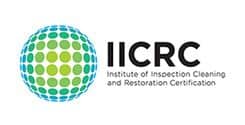
Unpleasing scents are never welcomed. When we feel even a little whiff of bad odor, we instantly try to find the source of where it is coming from. Unless we figure that out, it is a constant battle of spraying fresheners and air fresheners. However, getting rid of musty smells is a must because you never know if they are coming from a harmful source.
Musty smells can be a reason for multiple concerns in your house. To get rid of them, you need to find out why they are occurring and eradicate the pungent smell.
Here are seven ways of getting rid of these musty smells and having a fresher, cleaner airflow in your home.
You need to have a good deep cleaning session to eliminate the smell. That means removing everything and cleaning every speck. Dirt and Mold are some of the probable causes of musty odors. Carpets, Rugs, and Sofas are some potential spaces from which musty odors can start.
Take it gradually but get a thorough job done:
Another factor that can cause musty smells is the air quality in your house. You need to clean your HVAC systems. Professional cleaners can do the job well, and you can have cooler or warmer air as required. You will feel a significant difference in the air quality after you get an expert session booked. On a more regular basis, you can change and clean air filters.
On a weekly basis, make sure to leave some doors and windows open to get rid of the musty smell. You need to let the sunlight and fresh air come in, so it stays dry and moisture-free. Install an air humidifier to maintain the freshness around the house so that the space remains free of humidity and moisture even when the vents are closed.
Deep cleaning is not only restricted to the areas where you receive more traffic than other corners of the house. You need to check the washing area, basements, and crawl spaces, which are usually dark and cold. These are exposed to humidity and moisture, a root cause of mold infestation. Install vents and window spaces around the area so fresh air and sunlight can pass through. Deep clean any furniture or appliances that are kept in these areas so you can remove any traces of musty odors instantly.
Musty smells are usually trapped in fabrics and clothes. These can include your towels, bedding, or any linen you may use around the house. Usually, when these articles are moist and unclean, they start to smell, which causes a pungent and unpleasant scent around the house. The best way to be sure is to rinse any potential sources with baking soda and vinegar in a washing machine.
For the ultimate cleaning hack, using vinegar and baking soda removes dust and grime easily, disinfects, and cancels any unpleasant odors that might be creeping back into the house. Vinegar and Baking soda have no side effects. These don’t fade or erode the surface even after constant use and are extremely inexpensive to buy. You can use the mixture to clean, wash, and scrub anything around the house for a cleaner and fresher space.

Harry Virk is the director of CleaningPro Auckland. He has years of experience in the cleaning industry and his company is expert at providing exceptional cleaning services in Auckland. He has a passion for helping people and making sure that their homes are clean, tidy, and ready for visitors.




